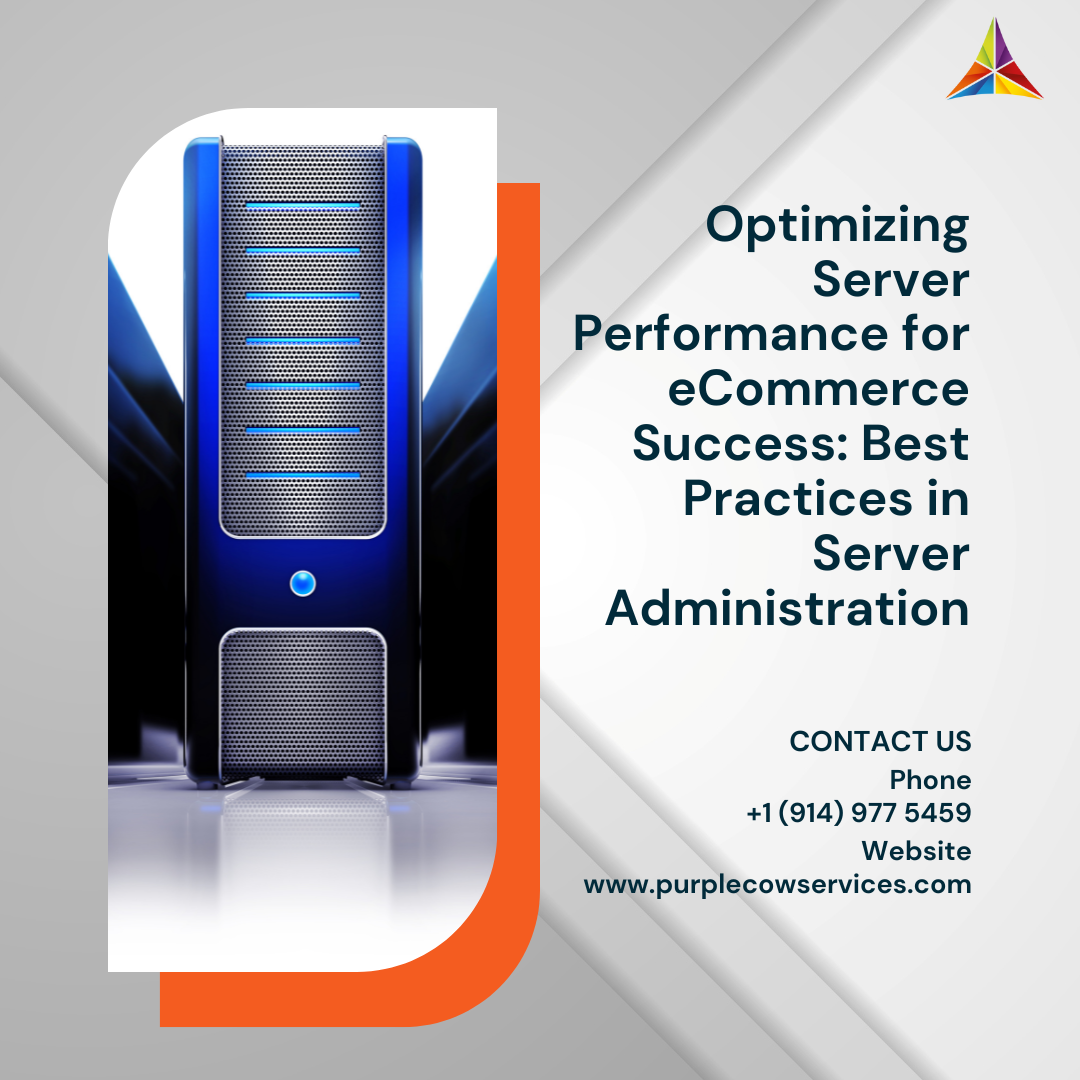That’s why optimizing server performance is crucial for eCommerce success. In this blog, we will explore the best practices in server administration that can help you achieve optimal server performance and deliver an exceptional online shopping experience to your customers.
Importance of Server Performance in eCommerce
In the eCommerce landscape, where every second matters, server performance plays a vital role. A well-optimized server ensures that your website loads quickly, handles high traffic volumes, and remains stable even during peak times. It directly impacts key factors such as website speed, uptime, and scalability, which are crucial for customer satisfaction and conversion rates. By investing time and effort into optimizing server performance, you can create a solid foundation for your eCommerce business to thrive.
Server Hardware and Infrastructure
Choose the Right Server Hardware: Invest in reliable and high-performance server hardware, such as powerful processors, ample RAM, and fast storage solutions, to ensure smooth and efficient operations.
Implement Load Balancing: Distribute incoming traffic across multiple servers using load balancing techniques to prevent overload on a single server, ensuring optimal performance and high availability.
Scalability: Plan for future growth by designing a scalable infrastructure that allows you to add resources seamlessly as your eCommerce business expands. Cloud-based solutions can provide flexibility and scalability to handle traffic spikes effectively.
Server Software and Configuration
Operating System Optimization: Regularly update and optimize your server’s operating system to take advantage of the latest performance enhancements and security patches.
Web Server Configuration: Fine-tune your web server (e.g., Apache, Nginx) settings, such as adjusting caching mechanisms, compressing content, and optimizing request handling, to improve response times and reduce server load.
Database Optimization: Optimize your database queries, indexes, and table structures to ensure efficient data retrieval and minimize database-related bottlenecks that can impact server performance.
Content Delivery Networks (CDNs): Utilize CDNs to distribute your static content across multiple servers worldwide, reducing latency and improving load times for users across different geographical locations.
Monitoring and Performance Testing
Regular Performance Monitoring: Utilize server monitoring tools to track server metrics, such as CPU usage, memory utilization, network traffic, and response times, to identify performance bottlenecks and take proactive measures.
Load Testing: Conduct regular load tests to simulate high traffic scenarios and identify the server’s capacity limits. This helps you understand how your server performs under stress and enables you to make necessary adjustments before encountering real-world traffic spikes.
Application Performance Monitoring (APM): Implement APM tools to gain insights into your application’s performance, detect anomalies, and pinpoint performance issues in your eCommerce platform, web applications, or database queries.
Security Considerations
In addition to optimizing server performance, ensuring robust security measures is essential to protect your eCommerce business and customers’ sensitive information. Implement the following best practices to safeguard your server and maintain data integrity:
Server Security Best Practices
Regular Software Updates: Keep your server software and applications up to date with the latest security patches and bug fixes to prevent vulnerabilities that could be exploited by malicious actors.
Firewall Configuration: Configure a firewall to control network traffic and filter out potential threats, such as unauthorized access attempts or DDoS attacks, ensuring your server remains secure.
Strong Authentication: Enforce strong password policies and consider implementing two-factor authentication (2FA) to add an extra layer of security to your server.
Data Encryption: Encrypt sensitive data, such as customer information and payment details, using SSL/TLS certificates to protect it during transmission and storage.
Regular Backups
Regularly backup your server data, including website files, databases, and configuration files, to prevent data loss in case of server failures, hacking attempts, or other unforeseen events. Implement an automated backup strategy and store backups in secure off-site locations.
Conclusion
Optimizing server performance is crucial for eCommerce success. By following the best practices in server administration outlined in this blog, you can ensure that your eCommerce store delivers exceptional user experiences, high performance, and reliable uptime. Remember to regularly monitor and test server performance, implement security measures, and stay updated with the latest industry trends to maintain a competitive edge. Invest in your server infrastructure, take proactive measures, and enjoy the benefits of a fast, stable, and successful eCommerce business.
Maximize your eCommerce success with optimized server performance. Say goodbye to slow loading times and downtime frustrations. Our expert team implements best practices in hardware, software, and security, ensuring exceptional speed, scalability, and reliability. With proactive monitoring and performance testing, we keep your online store running smoothly, providing customers with a seamless shopping experience. Stand out from the herd and drive eCommerce success with our Purple Cow server administration service.














